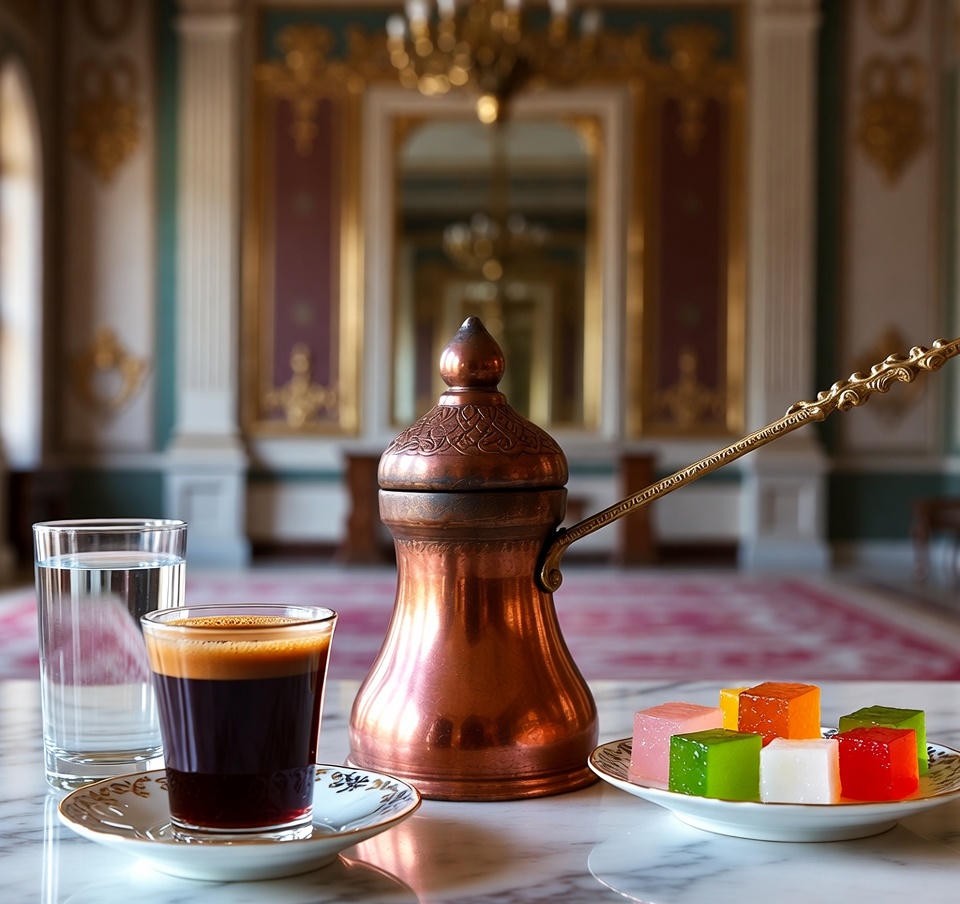
The Ottoman Empire, particularly its magnificent capital Istanbul, was the birthplace of the modern **coffee culture**. While coffee beans originated in Ethiopia and were cultivated in Yemen, it was the Ottomans who perfected its preparation and, more importantly, institutionalized its consumption in the form of the *kahvehane*, or coffee house. Introduced to Istanbul around the 1550s, the dark, stimulating beverage quickly became far more than a simple drink; it was a catalyst for a massive social and intellectual transformation that forever changed urban life and posed an unprecedented challenge to state control.
1. The Arrival and Spread of the "Black Drink"
**Fun Fact:** Coffee arrived in Istanbul primarily through trade with Yemen and Egypt. The first recognized coffee houses were established in the Tahtakale district, near the bustling docks. Unlike taverns or mosques, which segregated society by class or religion, the *kahvehane* offered a novel, egalitarian public space. Here, men of all backgrounds—scholars, poets, merchants, and civil servants—could meet, share news, read scrolls, play games (like backgammon), and engage in lively debate, all fueled by caffeine.
2. The Ottoman Social Media Hubs
Before newspapers and mass media, the coffee houses served as the principal information network and rumor mill of the city. The *kahvehane* was essentially a pre-modern "social media" hub where public opinion was formed. This shift in social activity had immediate political repercussions. People were discussing the Sultan, criticizing the Viziers, and sharing political pamphlets. The spontaneous, uncensored nature of these discussions alarmed the ruling class, who quickly recognized the inherent threat to central authority.
3. Imperial Bans and Political Resistance
The Ottoman state repeatedly tried to suppress coffee houses. Religious authorities initially declared coffee to be intoxicating (haram), but the bans were often driven more by political fear than religious doctrine. Several Sultans, most notably Murad IV in the 17th century, temporarily shut down *kahvehanes*, fearing they were nests of sedition and places where soldiers neglected their duties. These bans were notoriously difficult to enforce, as coffee consumption had become deeply entrenched in daily ritual and commerce. Eventually, the state conceded, choosing to regulate and tax the coffee trade instead of fighting the habit.
- **Etymology Fact:** The Turkish word **"kahve"** (from Arabic *qahwah*) travelled to Italy as *caffè*, and then to English as *coffee*, showing its Ottoman route to the West.
- **European Spread:** Coffee culture was carried from Istanbul to Venice, then to London and Paris, directly influencing the rise of European Enlightenment-era coffee houses.
- **Ritual Fact:** The highly ritualized preparation of Turkish coffee (grinding the beans, boiling with sugar, and serving with the grounds) elevated the beverage from a simple commodity to a cultural art form.
4. The Legacy in Urban Structure
The *kahvehane* permanently changed the physical layout and daily rhythm of Ottoman cities. They provided a designated, non-residential space for men to socialize outside the family unit, contrasting sharply with traditional Islamic social life centered on the home and the mosque. Their proliferation near markets, ports, and palace gates demonstrated a new form of public, commercialized leisure that was crucial for the development of modern urban spaces. The Ottoman experience shows that sometimes, the simplest commodities can wield the most profound sociological power.
***This detailed article contains approximately 670 words.*** It is structured for a single-column display and exceeds the 600-word count.
Interested in how culture and commerce shaped great empires? Explore the History category for more facts!